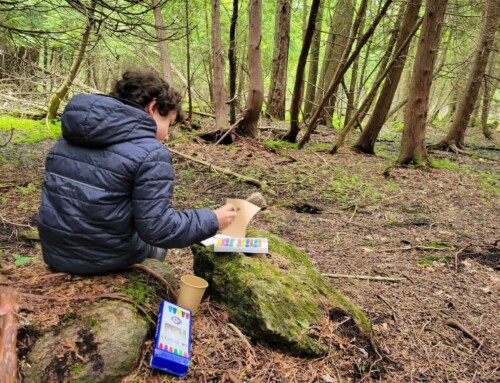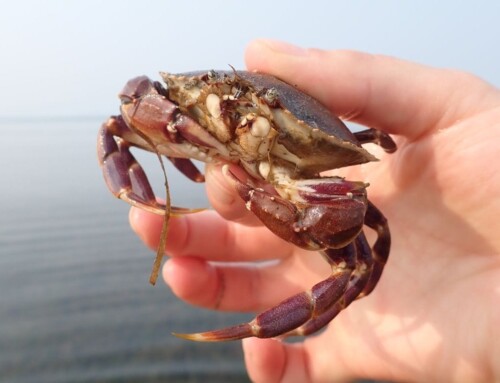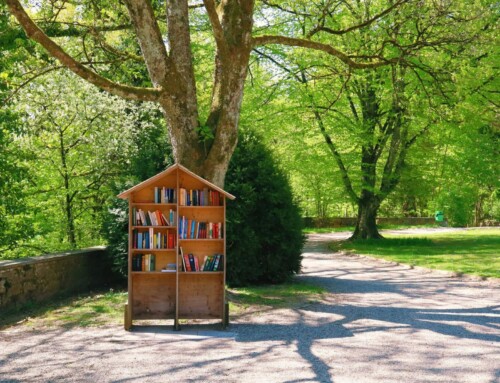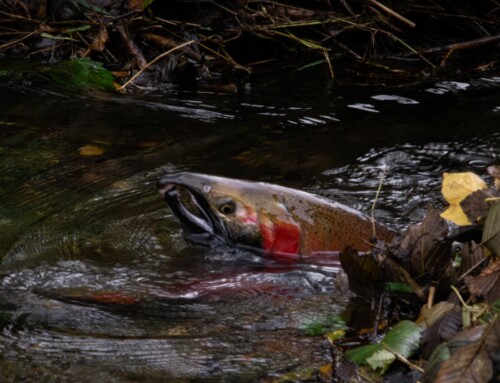The Land We’re On
August 12, 2021
If you’ve been around us long enough you may recognize a saying often shared to illustrate the essence of creation care: “we care for only what we love, we love only what we know, and we know only what we experience.” For some, coming to experience creation started with observing a woodbug on a midsummer afternoon or gazing in awe of nature’s beauty at the peak of a mountain or canoeing through a glistening lake. These experiences often awaken a thirst to further understand, whether that’s knowing the particulars of a species of plant or questioning the ways in which these creatures and places are treated. And finally, this knowledge should bring us to a new (or renewed) love for creation and a desire to do something to care for it ourselves.
It is this precise process that prompts us to seek to understand and show love and deep care for not only the land we inhabit but those who have inhabited it before us.
The work of transforming people and places would be incomplete without highlighting the truth that the environment is an issue of justice. Often the poor are the first to suffer when the land is damaged through deforestation, pollution, desertification, and climate change. In some cases, whole cultures of people, namely the Indigenous peoples of Canada, suffer when the environment that is rightfully theirs is stolen.
Guided by our Christian faith and commitment to justice for both people and places, we cannot ignore the centuries of abuse to Indigenous peoples in Canada through the impacts of colonialism.
We acknowledge that A Rocha Canada is located on the unceded, shared, current, and traditional territories of multiple Nations.
- British Columbia: We are grateful to work (and live) within the Tatalu (Little Campbell River) Watershed on the unceded traditional territories of the Coast Salish people: including Semiahmoo, Kwantlen, Stó:lō and W̱SÁNEĆ First Nations. We also acknowledge that we are privileged to live, work and play within the unceded traditional territories of the Wet’suwet’en.
- Manitoba: We live and work within Treaty 1 and Treaty 3 territories, the traditional lands of the Anishinaabeg, Anisininew, Dakota Oyate, and Nehethowuk peoples and the homeland of the Red River Métis. We are committed to building a world where communities flourish as people and nature thrive together.
- Ontario: We are grateful to work (and live) within the Halton-Hamilton Watershed of Lake Ontario, on the traditional territories of the Ho-de-no-sau-nee-ga (Haudenosaunee), Anishinabewaki ᐊᓂᔑᓈᐯᐗᑭ , Attiwonderonk, Mississaugas of the Credit First Nation, and Mississauga First Nations, covered by the Dish with One Spoon Covenant.
We realize that the land acknowledgment practice is only one part of supporting Indigenous communities. It is a recommended first act of reconciliation, a prayer for repentance. We stand in solidarity with Indigenous peoples and fully intend to grow programming that engages diverse communities. As a start, A Rocha is working alongside Semiahmoo First Nation and other members of the Shared Waters Alliance to monitor water quality in several locations along the Tatalu and its tributaries as we share in mutual conservation priorities.
As an organization, our leaders are committed to learn and align our practices with the recommendations of the Truth and Reconciliation Commission calls to action including upholding the UN Declaration on the Rights of Indigenous Peoples. To start, our staff are encouraged to learn and listen from the increasing resources and courses available from local Indigenous organizations. From this learning we will be intentional over the next few years to listen well to opportunities and grow in our relationships with Indigenous communities towards mutually beneficial programs. Our hope is that this intentionality will continue to help us be in meaningful relationships with Indigenous communities as we are rooted in local places.
And although we know that we will never experience the injustices done to the Indigenous people of Canada, we hope that our openness of mind and heart to partnering with Indigenous communities while reconsidering our own biases, will lead us to better understand and more deeply love all people and places.
Related: Read the blog Shared Waters: A Rocha’s Work in the Tatalu/Little Campbell River in BC







